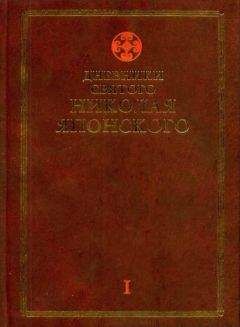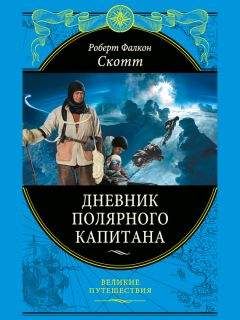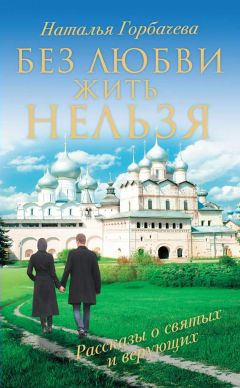Nikolai also wrote in «the Letter» that he had secretly begun to preach Christianity among the Japanese.
«By the way, I tried to do all that is possible directly for missionary purposes. Firstly, of course, it was necessary to find men who, having accepted Christianity, would be able in their turn to devote themselves to the propagation of Christianity.
Four years after my arrival in Japan, God sent me one man. A year later he found himself a friend and in the course of that year they found a third colleague». (Trans. by Fr. John Bartholomew.)
«From all that has been stated above», Nikolai concluded, «it seems we can expect that there will be an abundant harvest in Japan, at least in the immediate future… Catholicism and Protestantism have occupied the whole world… But here is still a country, the last one in a number of newly discovered countries. If only we could stand here coping with other Christian confessions… God will provide that I will not be deserted and will not remain here alone, doomed to fruitless solitary work. I came here with that hope and have been living here with it for seven years. Realization of the hope has been my earnest prayer…
So I submitted an application to grant me leave. When I obtain permission, I will go to St. Petersburg to petition the Holy Synod for establishing a mission here».
Nikolai’s Return Home and the Establishment of a MissionNikolai returned to Russia at the beginning of 1869 and stayed there for nearly two years. In St. Petersburg he petitioned the Holy Synod and influential persons of the Church for the establishment of a Russian Orthodox mission in Japan.
The Diaries of St. Nikolai of Japan open with an entry for March 1, 1870, written at the Alexander Nevsky Monastery in St. Petersburg.
His efforts were crowned with success. On April 6, 1870, foundation of the mission was approved by the Holy Synod and Nikolai was appointed its head and promoted from Hieromonk to Archimandrite.
The mission had a small staff which consisted of three priests besides Nicholas and one subdeacon. It was provided with an annual budget of 6,000 rubles. Nikolai visited all four theological academies in Russia and attempted to persuade some of the students to join him in missionary work in Japan, but to his disappointment none of them responded to his call.
After Nikolai’s Return to JapanIn February, 1871, Nikolai returned to Hakodate with a colleague, Father Grigorii (Volontsov). However, Father Grigorii turned out to be (according Nikolai’s diary entry for January 1, 1872) too idle to be a missionary, and Nikolai had to send him back to Russia in June, 1871.
In December of that year, Hieromonk Anatolii (Alexander Dmitrievich Tikhai), a graduate of the Kiev Theological Academy, arrived in Hakodate to assist Nikolai.
In January, 1872, Nikolai left Hieromonk Anatolii in charge at Hakodate and set out for Yokohama by sea, eventually arriving in Tokyo on February 4. He immediately began preaching Orthodox Christianity in the new capital of Japan. Since then, for more than 40 years, with untiring zeal, Nikolai continued to promulgate Orthodoxy in Japan.
In August, 1879, Nicholal returned to Russia for the second and final time, staying there until November, 1880 to collect contributions for construction of the Cathedral of the Holy Resurrection in Tokyo. During his stay in St. Petersburg, on March 30 (O. S), 1880, Nikolai was consecrated as a Bishop.
The greatest misfortune to befall Nikolai and the Japanese Orthodox Church of the Meiji era was the Russo–Japanese War of 1904–1905.
Although the entire staff of the Russian Legation returned to Russia, Nikolai himself remained in Tokyo to defend his flock against the attacks of non–Christian and Protestant Japanese. He also worked for the welfare of the Russian captives in Japan (who numbered more than 70000) and sent Japanese Orthodox priests and Russian–speaking catechists to the prisoners’ camps to provide the Russians with some religious consolation.
Throughout the war, Nikolai wrote his diary; indeed this period marks the climax of his diary writing. The war ended in September, 1905. In April, 1906, Bishop Nikolai was elevated to the dignity of Archbishop. Six years later, on February 16 (3 O. S.), Nikolai — the Apostle to Japan — passed away.
In 1911, just before his death, the Japanese Orthodox Church numbered (in addition to Archbishop Nikolai) 1 bishop, 40 priests and deacons, 15 precentors (regents), 121 catechists, 31984 Orthodox Christians, and 265 churches and houses of prayer.
Historical Value of the DiariesThe enlightenment of Japan during the Meiji era encompassed the westernization of Japanese politics, social relations, industry and so forth. The westernization of Japan in the field of religion meant the implantation of Christianity, which has since then obtained a considerably wide acceptance in the Japanese people and has had a great influence upon their spiritual life.
However, the Christianity newly implanted in Meiji Japan was not a single kind. It comprised at least three varieties: Catholicism, Protestantism, and Orthodoxy, each of which had its own characteristic influence on the Japanese people. (For the reopened Japan, Orthodoxy introduced from Russia was one of the ’western’ faiths.)
The history of Protestant missions in Japan has been investigated in detail. Protestantism spread mostly among those young Japanese intellectuals who were eager to study ’Western science’. From the start, Protestant missionaries in Japan made use of the English language (the indispensable key to Western learning) to attract young Japanese. (Please see the article «Protestant Mission» by Masao Takenaka in The Cyclopedia of the History of Christianity in Japan, Tokyo, 1988.)
The history of Catholic missions in Japan, according to the article «The History of Christianity in Japan» by Arimichi Ebisawa in the above–mentioned Cyclopedia, has not yet received a thorough study, except in the area referred to as ’ the revival of early Christianity in japan’. Studies of the diplomatic history of the Catholic Church and of monastic orders have been published, but we do not yet have a complete history of Catholicism in Japan.
The history of the Orthodox Church in Japan, though it was the second largest Christian sect after Catholicism, has received much less attention than that of the Catholic Church. The entire picture of its missionary activities, its relation with the Russian Orthodox Church, and the characteristics of its faith has not yet been provided. There have been few students of the history of the Orthodox Church in Japan.
It is true that we have basic data for the compilation of its history during the Meiji era — for example, the twice–monthly newsletters Kyokai–Hochi (1877–1880) and Seikyo Shimpo (1880–1912). And two attempts at the history of the Church, Nihon Seikyo Dendoshi, edited by Kisaburo Ishikawa, and The Life and Deeds of Archbishop Nikolai, edited by Fr. Peter Shibayama, were published in 1901 and 1936 respectively. But they don’t give us a ’bird’s–eye view’ of the whole history of the Church. We must say that the history of the Japanese Orthodox Church and the achievements of Nikolai and his faithful followers during the Meiji
era have long remained outside the mainstream of research interests concerning the history of Christianity in Japan.
Only recently have some researchers begun to shed light on this subject. Since the late 1970s, they have been writing books and papers about these subjects, and have produced Japanese translations of the papers and reports written by Nikolai which were published in Russian journals. Also, many local Orthodox churches in Japan, upon celebrating their centennials, published their own histories. As a result of these recent works, various aspects of the history of the Japanese Orthodox Church are gradually being brought to light.
The Diaries of St. Nikolai of Japan provide materials of inestimable value for the study of Church history. In these diaries, we find many interesting and valuable facts (especially about the main center of the Orthodox mission in Japan) which have remained hitherto unknown. With these diaries, the field of study will move forward with rapid strides and will rest upon much firmer and objective bases.
The Diaries contain the private diaries kept by Nikolai, founder and head of the Japanese Orthodox Church. They are the first and most reliable source for historical knowledge of the Church. There were many hidden facts in its history which were kept secret between Nikolai and the persons concerned, and which we could not possibly be aware of without seeing his diaries.
From that source we may learn, for example, how Nikolai was supported financially by the Holy Synod and Missionary Society, and how he felt about the living conditions of Russian prisoners of war in Japan, as well as how he rated the efficiency of his Russian colleagues and Japanese catechists.
Nikolai sometimes made extensive tours, visiting local churches throughout Japan. He kept up his diary during these tours, giving a full account not only of parish congregations but also of life in rural communities. We can know from his travel diary, for example, how eagerly Japanese Orthodox farmers of the early Meiji years were practicing new styles of Western singing, and under what conditions young women were laboring in provincial towns. Few foreigners knew Japanese provincial life of the time so well at first hand as did Nikolai. His travel diaries are, as it were, the field notebooks of a sociologist gathering materials on the rural life of Japan.
The Diaries of St. Nikolai possess, in addition to historical values, an autobiographical aspect. In Japan Nikolai had no trusted adviser with whom he could talk freely. His diary was thus an indispensable companion to which he had been making a full confession for many years.
For example, in the diaries for 1871 and 1872 we can read a long and harsh criticism of his first colleague Father Grigorii, which faithfully reflects the genuine missionary enthusiasm of the young Nikolai, which we could never know without his diaries.
In his diaries for the period of the Russo–Japanese War, we can learn his views of the Japanese people and Russo–Japanese relations. The comparison ofjapan (a maritime power) and Russia (a continental one), which he made in the diary entry for May 20, 1905, is an interesting topic even today.
Nikolai’s diaries are full of frank confessions and straightforward thinking. They will captivate not only those persons who are interested in the history of the Japanese Orthodox Church, but also those who are interested in vital human documents in general. Reading Nikolai’s diaries, we can reach the conclusion that he was of good health in both body and mind. He was not excessively intellectual or logical. He was very abundant in his feelings of both joy and anger. He was candid and sincere. Together with this richness in emotion, he was also a man of coolness and stoicism.
According to many of Nikolai’s Japanese pupils, he readily displayed feelings of joy and anger. In the diaries he himself acknowledges his weakness of having a hot temper, but he often had ample reason for angry. He was stirred to anger when the faithful of the Japanese Orthodox Church were persecuted by ’heathen’ Japanese, or when his Russian and Japanese colleagues were intolerably lazy in their missionary efforts, or when someone lied to him intentionally. Of course he felt deep sorrow when his Seminary pupils were drafted into the military and were killed in battle. In the diaries, he expressed his sincere gratitude to those colleagues and laymen who worked diligently for the Church. Nikolai was apt to become excited, but he was fair in his feelings and dealings.





